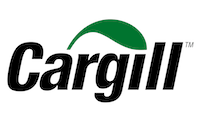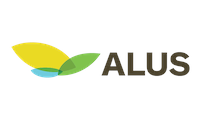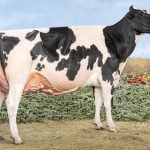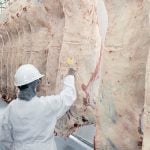Cattle producers play an important role in combating climate change. One of the ways they do this is through incorporating regenerative agriculture practices into grazing management. Launched in 2021, the funding initiative by A&W Canada and Cargill aims to support ALUS in its efforts to help beef farmers and ranchers do just that, while also improving the environment and enhancing the long-term resilience of surrounding communities.
ALUS is a Canadian charitable organization working with farmers and ranchers to produce valuable ecological services on Canadian acres for the benefit of future generations.
“Grazing Forward was developed to help address climate change throughout the beef supply chain. The program is an extension of our New Acre Project,” says ALUS CEO Bryan Gilvesy. “We’re excited to work on a local level with partners to develop a suite of options that each community and each individual ranch can choose to fund – whether that’s enhanced grazing, restoration of wetlands, establishment of trees and shrubs or any other practice that helps to lessen environmental impacts. ALUS has worked with beef producers over the past 20 years to implement practices that help improve Canadian ecosystems and Grazing Forward will help us advance this important work.”
The term “regenerative agriculture” has become more common in recent years and is used to describe farming and grazing practices that, among other things, help mitigate climate change by rebuilding soil organic matter and restoring soil biodiversity — improving both carbon levels and water quality.

“Cargill sees a great opportunity in beef to not only provide quality protein, but also to build a better, more resilient world for those who come after us.”
says Heather Tansey, Cargill Vice President, Environmental Sustainability
“Cargill sees a great opportunity in beef to not only provide quality protein, but also to build a better, more resilient world for those who come after us,” says Cargill Vice President, Environmental Sustainability, Heather Tansey. “Farmers and ranchers are leading the way, and through projects like Grazing Forward, we can collectively support and empower producers with the resources they need to address sustainability challenges, while ensuring strong businesses for themselves and their families.”
As part of Grazing Forward, A&W Canada and Cargill together will invest $1.8 million over the next three years to support farmers and ranchers in Alberta, Saskatchewan and Manitoba, to help scale up their regenerative agriculture practices to capture carbon dioxide. The funds will allow producers to plan and implement practices that contribute to positive environmental outcomes, including improved soil health and water quality, increased biodiversity and plant growth.
“When we introduced grass-fed beef in 2020, we made a commitment to champion the growing regenerative agriculture movement,” says Susan Senecal, president and CEO of A&W Canada. “We believe that through harnessing the power of regenerative agriculture, Canadian ranchers can help mitigate climate change and restore our grasslands. We are excited about our Grazing Forward program in partnership with ALUS and Cargill because of how simple and practical it is — Canadian ranchers will be able to access proven tools and resources and see tangible results.”

“When we introduced grass-fed beef in 2020, we made a commitment to champion the growing regenerative agriculture movement.”
Susan Senecal, A&W Canada President and CEO
Gilvesy says the fact that the funding extends to cost-sharing of establishment expenses over three years, with additional annual per-acre payments, is a benefit to potential participants as many of these adaptive measures are multi-year projects which require longer-term economic support.
“ALUS will also provide immediate and longer-term technical guidance and extension services in the community. Furthermore, our community partners have strong ties with local government and university groups and have many established relationships to assist.”
ALUS’ community partners will work with interested beef ranchers on site-specific development plans to implement sustainable practices across more than 20 communities and more than 6,000 acres, with a goal of sequestering up to 13,000 metric tonnes of greenhouse gas emissions. This program will also extend ALUS’ New Acre Project’s reach across all participating communities in Alberta, Saskatchewan and Manitoba.
Protecting native species
North America’s prairies have been grazed since bison herds dominated the landscape. Cattle grazing can be used as a tool to mimic the role native herds played on grasslands, working in harmony with nature to support long-term success for the land and community. Tansey says enhanced cattle grazing can provide benefits to the environment by supporting carbon sequestration, while also playing an important role in protecting wild spaces.
“Native prairie is home to unique wildlife and species, and beef production can often be one of the best uses of this land — agriculture and nature can coexist in this ecosystem,” says Tansey.
Cargill understands and values the potential of agriculture to help address climate change and has a corporate goal to reduce greenhouse gas emissions throughout its North American beef supply chain by 30 percent by 2030.
“To achieve this, we’re partnering with conservation organizations and our customers — retailers, restaurants and food manufacturers — to invest in research and resources that support further adoption of producer-led practices and accelerate sustainable progress on the ground.”
Expected environmental impacts from increasing enhanced grazing practices include increased carbon sequestration, improved water-holding capacity in the soil, increased biodiversity, increased vegetation growth, reduced weed pressure, improved soil quality, improved water quality and increased nutrient cycling.
Grazing Forward will be implemented on a local level, with at least 20 communities participating across Alberta and the Prairies. Support and guidance will be provided by Partnership Advisory Committees made up of ranchers, municipal leaders and other key stakeholders. ALUS will provide guidance to ranchers who are exploring stewardship options for their land. Each committee will help guide activities to ensure they meet specific local concerns, such as the protection of wildlife species or watershed management. For more information and to get involved, visit alus.ca/grazing-forward













